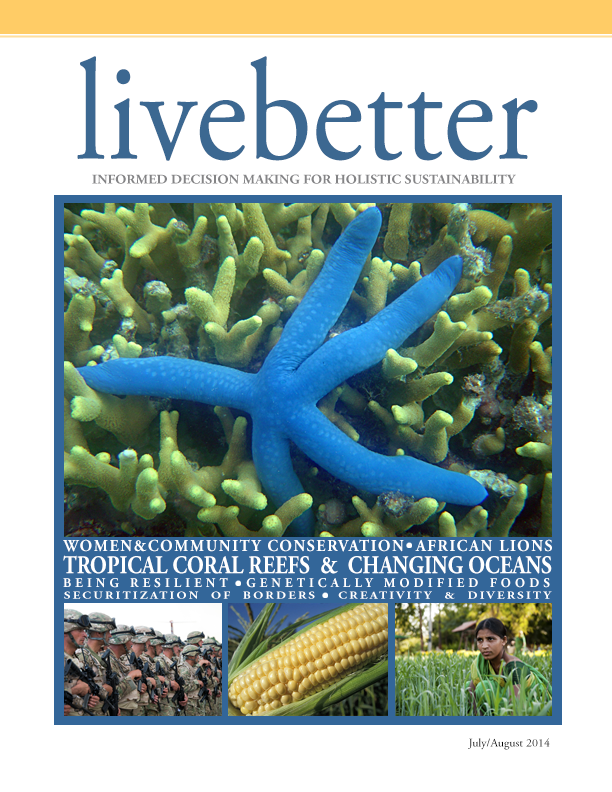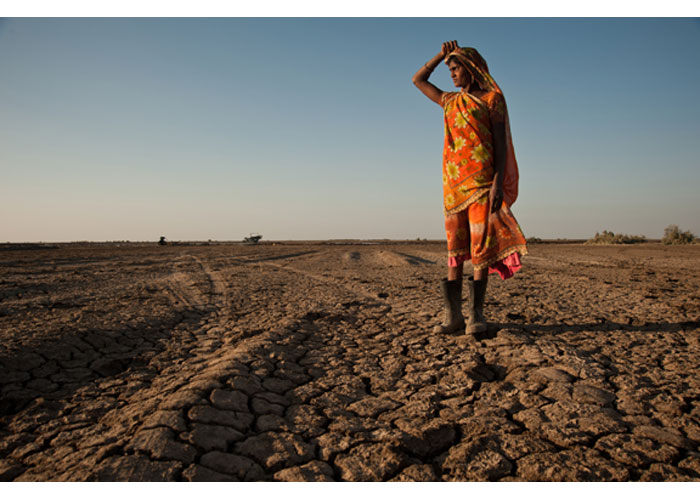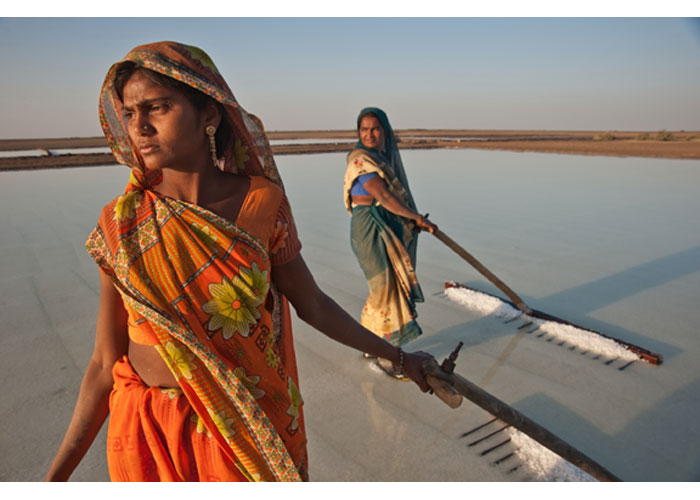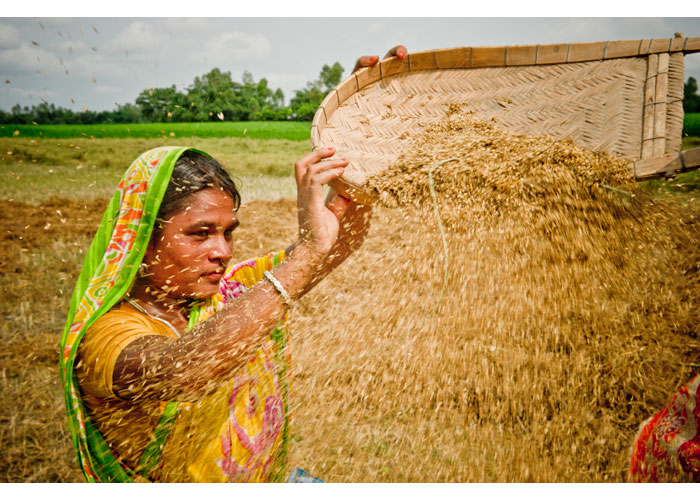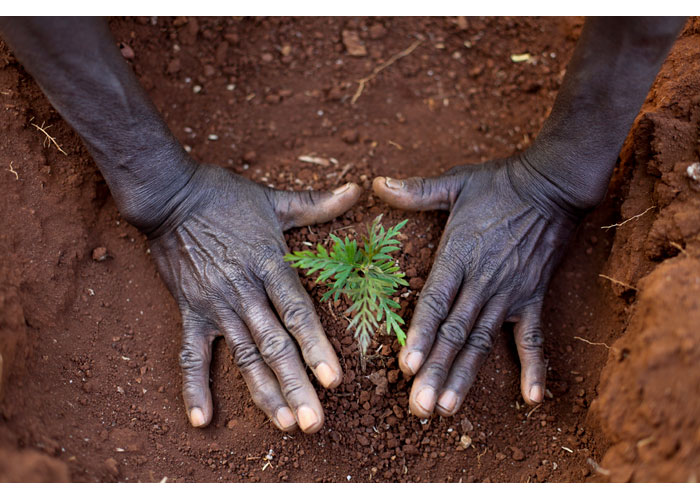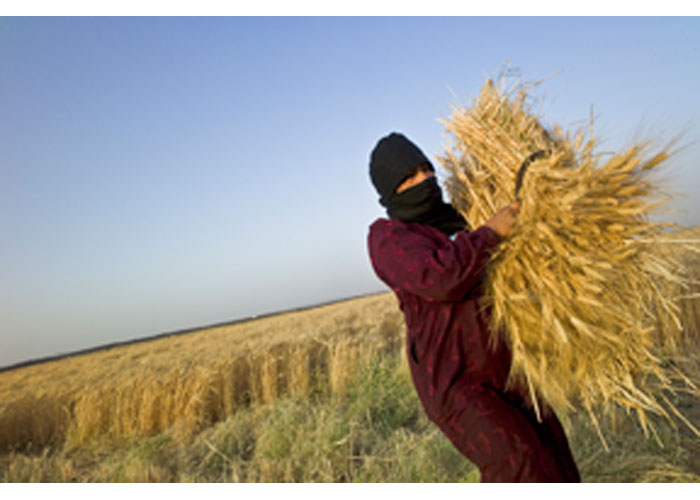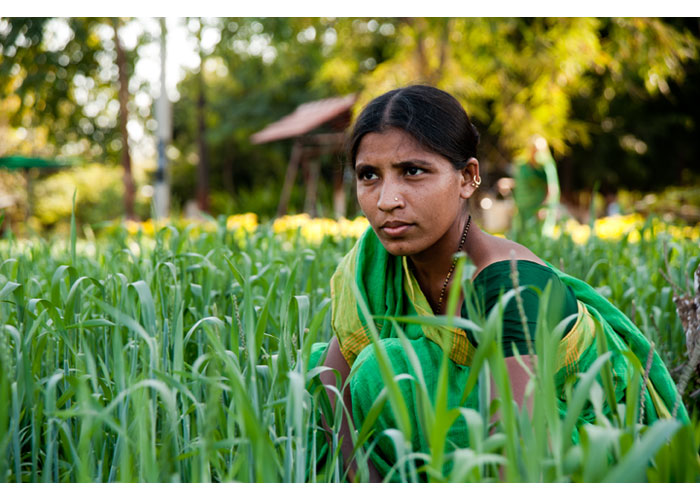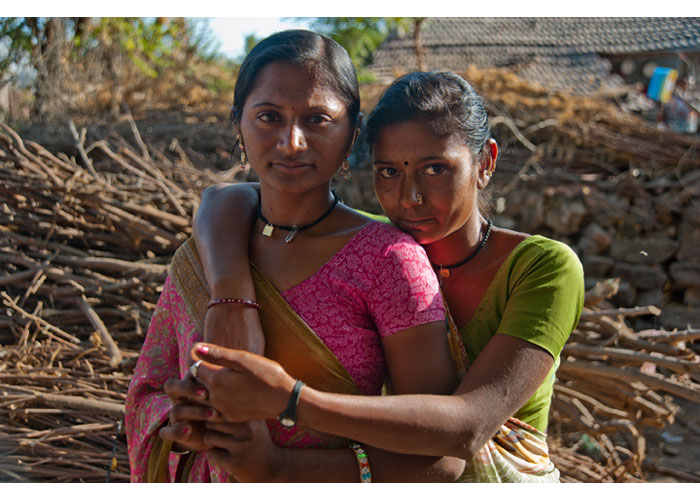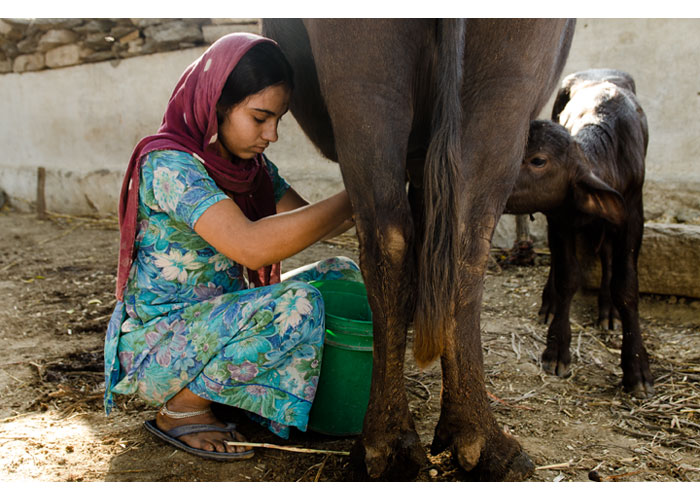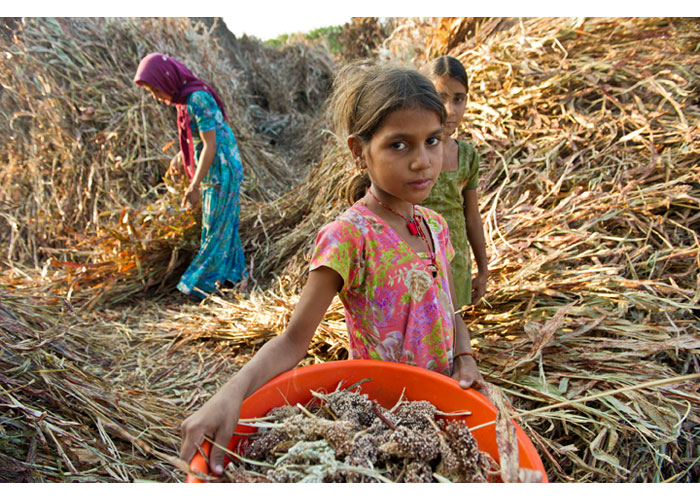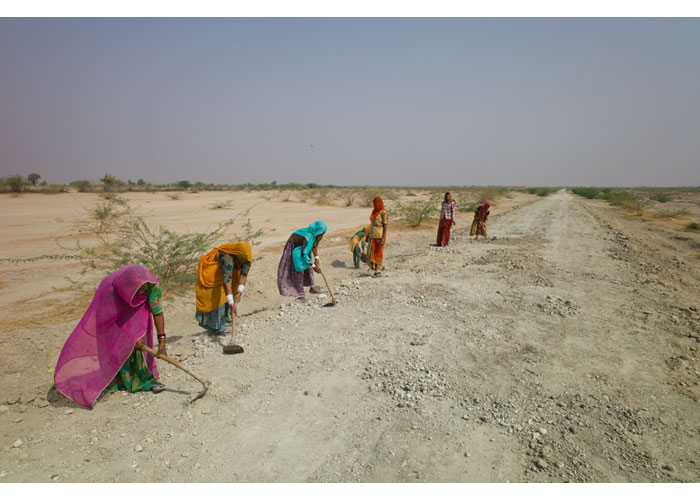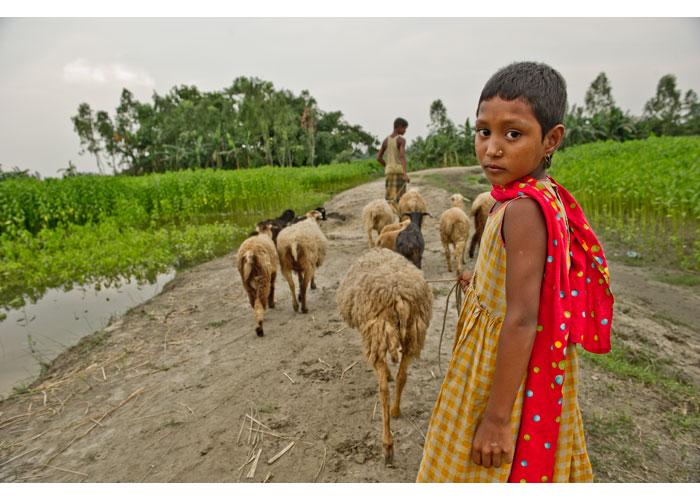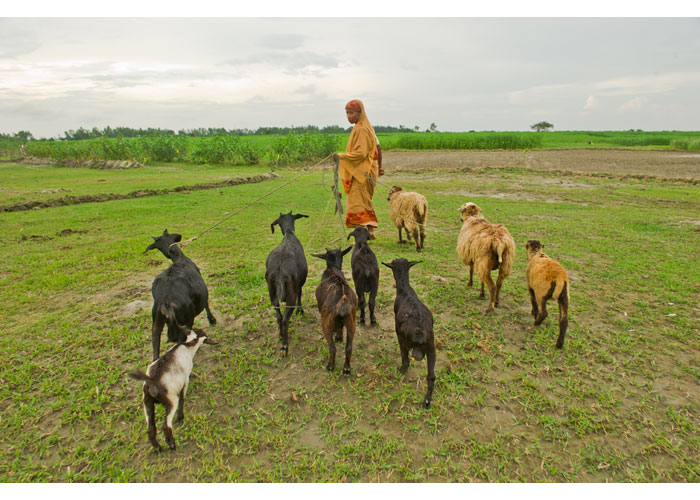Earth-Kind Innovation for a Kinder Earth
When I was five, my father drove me the short distance to Staten Island, N.Y., to see Fresh Kills, once the largest landfill in the world. I was absolutely speechless. The nearly two thousand acres of garbage changed my thinking forever. I remember asking him how long it takes shampoo bottles to “go away.” When would they disappear from the landfill? “Not in our lifetime,” my father answered. (The way I ask the question now is, “Why would someone put only one month’s worth of shampoo into a bottle that lasts for thousands of years?”) Fast-forward to my years as a struggling North Dakota farm wife with a mouse problem in my tractor cab. I had pets and small children, so poison was out of the question. No non-toxic rodent repellent existed on the market, so I started researching, experimenting and researching some more. My company’s first “manufacturing” was done by farm wives sitting around my kitchen table.
These days the scenario is quite different. Earth-Kind manufactures all-natural Fresh Cab® rodent repellent and air fresheners. More than 15,000 retailers sell Fresh Cab® and love the 90 percent repeat purchase rate. Fresh Cab® is the only EPA-registered, non-toxic, natural rodent repellent for indoor use. It is the Number One animal repellent on the U.S. Department of Agriculture’s Bio-Preferred list. Our packaging is biodegradable; our carbon footprint is 2 percent, and we employ people with developmental disabilities to assemble our products.
Earth-Kind grew from a packet of flower seeds to $5 million a year in revenue because, from the beginning, we focused on local sustainability. I didn’t start out wanting much: just to manufacture, market and sell a product that would add value to the world and leave me with at least a nickel out of every dollar after taxes. Since then I’ve developed global aspirations and am working with the U.S. Department of Commerce to get Fresh Cab® into countries where millions of people are starving. Keeping rodents out of food storage silos and barns will go a long way toward solving that problem – without endangering people, animals or the earth.
Before any entity would consider helping me with my global vision, my company and products needed to be locally sustainable. Here are the best practices – many simple and low-cost – that have helped us build, grow and market our company.
Source Locally
Using local financing, products and labor gives us a high degree of control over quality and a larger positive impact on our community.
- Local Financing. At one point early on there was a demand for Fresh Cab®, but we needed to ramp-up our production speed. Because I had no collateral, I went to the Bank of North Dakota (the only state-owned bank in the nation) for gap financing. The North Dakota Independent Bankers Association published a story on Earth-Kind because it was apparently innovative to borrow money for balsam fir, corn cobs and the labor of people with disabilities.
For Fresh Cab® to differentiate itself from alternative solutions and to get noticed on retail shelves, it needed to be registered with the EPA as safe and effective. This was a highly time-consuming, expensive undertaking, and it ultimately cost about $250,000. I had the time but not the money, so I sought and received a farm diversification and value-added grant from the North Dakota Agricultural Products Utilization Commission. The grant helped us become EPA-registered – a necessary step in persuading people there was an effective alternative to poison.
- Local Raw Materials. Earth-Kind’s first manufacturing took place in Stanley, N.D., but eventually we moved our plant to south of the Twin Cities in Minnesota. This put us closer to farm suppliers of raw materials, and it reduced transportation costs and our already minuscule carbon footprint.
- Local Labor. Just as we had done in North Dakota, we hired people with developmental disabilities to assemble and package our products in Minnesota. These employees have a tremendous work ethic, and it makes us happy to work alongside them each day. We partnered with Minnesota’s Epic Enterprise, Inc. to find our employees.

© iStockphoto.com/beklaus
Shared Marketing
Since 1985 North Dakota has had a program called “Pride of Dakota,” an arm of the North Dakota Department of Agriculture. Pride of Dakota does very simple things to help entrepreneurs, home businesses and start-ups. Early on, when I didn’t have a dime, the organization facilitated groups traveling to expos together, rooming together and sharing booth space and other expenses. The cost to the state of North Dakota was small, but this program was just what we needed. Soon, without a huge dollar investment on my part, Fresh Cab® and our air fresheners were in 250 stores. Over time, as the Pride of Dakota brand came to signify high quality, being a member was even more valuable.
Mentoring: The Most Sustainable Practice
Mentoring is one of the most sustainable human behaviors. It costs nothing, and it spreads knowledge and confidence almost exponentially. The North Dakota Women’s Business Center, part of a network created by the U.S. Small Business Administration, mentored me as I created and grew Earth-Kind. In return, I’ve mentored many other small businesses with sustainable missions.
Simplicity, Not Complexity
Transformational leaders need to model the behaviors we’re trying to cultivate in others. I had to make sure Earth-Kind and its products were sustainable before I could lobby for sustainability with other business owners or government entities.
Sustainability thrives on simplicity and chokes on complexity. To foster sustainability, the entire business community and infrastructure must become simpler, and that means pruning the tangle of complex business taxes, red tape and regulations. Every complication requires additional staff and lawyers the little guys simply can’t afford. And allowing entrepreneurs and start-ups to compete more easily with well-established companies will benefit consumers, businesses of all sizes and the general U.S. economy.
Consumers will benefit from an increase in innovation. For instance, most consumers would prefer to buy “green” products if they’re available – even if they cost a little more than alternatives. If innovation were encouraged, more environmentally friendly products would be available and used.
Simplifying business laws and regulations would also mean businesses of all sizes would be forced to become leaner and adapt more quickly. This is the essence of business sustainability.
And the U.S. economy would benefit because the only thing that can resuscitate it is the creation of a vibrant, sustainable business economy. States that have accomplished this are prospering; states that haven’t are failing. If there were fewer regulations and more programs like those that have helped Earth-Kind, the U.S. economy would quickly refresh itself into what it once was: the benchmark for the rest of the world.










